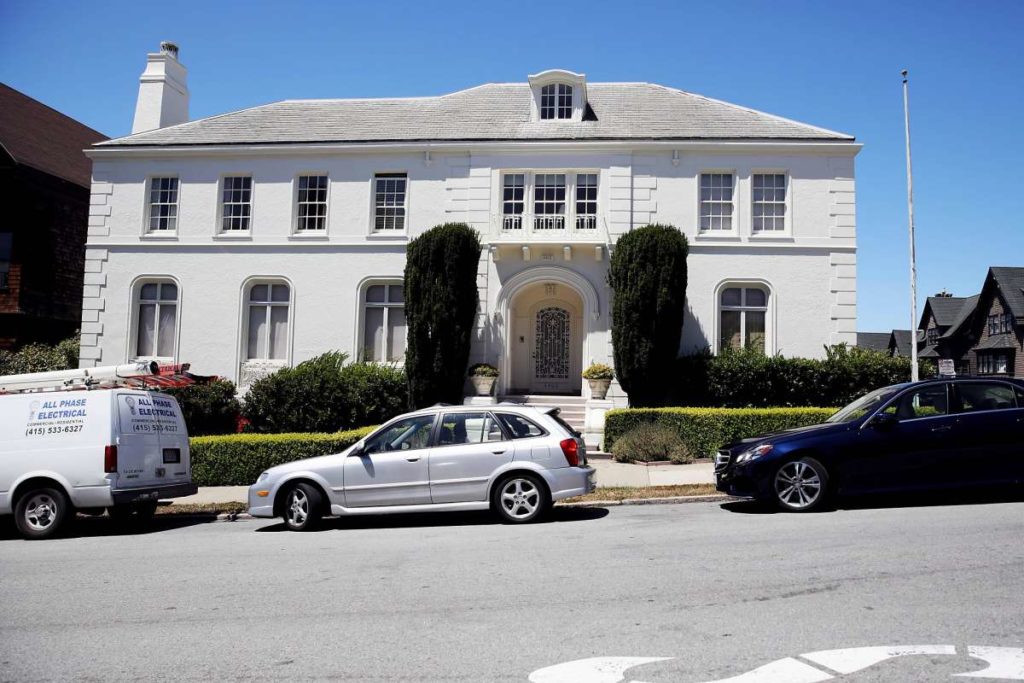August 9, 2019

The US State Department is trying to evict an American couple that has been renting the former Iranian consulate in San Francisco, saying they have allowed the building to deteriorate so badly that maintenance costs now far exceed what the government is making from the cheap rent it charges.
The house, a $16 million mansion bought by Iran under the Shah, is located in Presidio Heights, one of the swankiest neighborhoods in the city.
After the revolution, when the United States broke relations with Iran in 1980, the US government took possession of the Iranian embassy in Washington, DC, and 10 other properties Iran owned all across the country, including the consulate in San Francisco.
Many of buildings are rented out. The rental income is deposited in an account in Iran’s name and the revenues used to maintain the properties. When relations are resumed, Iran will get the properties back as well as the bank account.
Alexandra and Bruce Owen—she an interior decorator and he a real estate broker—have been renting the San Francisco property since 1984. The US government filed a lawsuit last month in the US District Court of Northern California arguing that the couple living at 3400 Washington Street is there unlawfully and asking that they be evicted under California’s Ellis Act, which allows landlords to get rid of tenants if a rental property is being taken off the market.
The property is a huge 8,700-square-foot mansion with 17 rooms and eight baths, with an estimated value of $15.7 million and a consequent rental value of about $14,000 per month. The couple has been paying $5,523.92 per month in rent, according to the lawsuit.
The rent is so cheap because the couple insisted in 1984 that the lease include a provision that the house be subject to all San Francisco rent control ordinances, which rarely apply to single-family homes.
The San Francisco Chron-icle reported that a government inspector toured the property in June 2018 and was alarmed by the volume of repairs the building needed. After the inspection, the government decided to take the property off the market since the cost to fix the sprawling 1927 home — $5 million — far exceeded the rent. The government plans to hold onto the property, but mothball it.
The couple was served a notice of lease termination June 19, 2018, and was sent more than $11,000 in relocation assistance. The couple, through their lawyer, asked for a year’s extension, which was granted. That extension has now expired, but the couple has not moved out.
In an interview with the Chronicle, Owen called the allegations “all a big lie” and “the most outrageous thing I have gone through in my life.”
“We are the world’s greatest tenants,” he said. “We’ve had problems with the State Department for a long time.”
The lawsuit states that international diplomatic regulations require that the upkeep of the Iranian properties is funded “solely from received rents.” The policy “seeks to protect US taxpayers from shouldering a financial burden to maintain and repair property owned by the government of Iran,” according to the lawsuit.
Owen, 80, who grew up around the corner from the home, said that he had originally leased the property with the understanding that his family would be able to purchase it after a few years. But the State Department cannot sell the property, which belongs to Iran.
When Owen moved in, he said, the house had been shuttered for six years. The ceilings and walls were warped, the plumbing and electrical work needed to be redone. The kitchen was covered in grease and the bathrooms were filthy, he said.
He said that he has invested “hundreds of thousands of dollars into maintaining the home. We have paid the rent on time every month of our life and maintained it to the best of our ability,” he said.
Owen said he would be willing to pay more rent if the government took better care of the property. “If the place didn’t leak like a sieve, we would pay $15,000 a month,” he said. “But why should we? We have a back room that is open to the sky.”
The house has quite a history of sometimes violent pre-revolutionary protests by opponents of the Shah since the Imperial Government bought the house in 1957.
In 1961, 22 Iranian students protested outside the house and went on a hunger strike. In 1969, protesters gathered at the house to protest the imprisonment of 14 Iranian students.
In 1970, a 31-year-old Iranian-American protester died outside the consulate after dousing himself with gasoline and setting himself on fire. Later that year, 41 Iranian students invaded the consulate, slashed oil paintings, dumped out filing cabinets and painted anti-government slogans on the walls. A dozen people were injured in the incident.
In 1971, a bomb was placed under the home’s bay window. Nobody was hurt in the explosion, but more than 100 windows in the neighborhood were shattered. No arrests were made.
